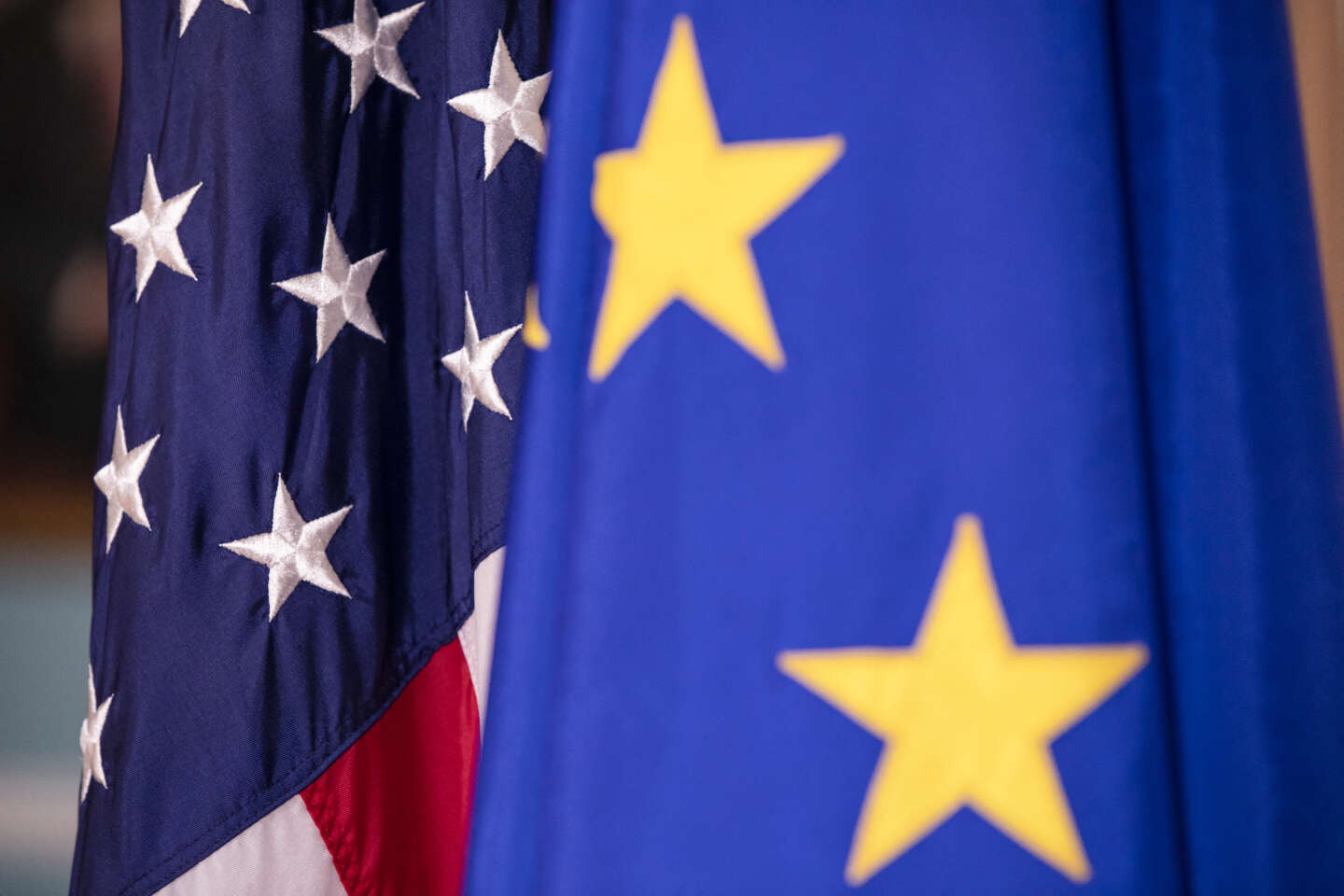In recent years, relations between the United States and the European Union (EU) have not been good. Far from it. After the Trump years, during which they deteriorated considerably, the arrival of Joe Biden in the White House did not, at first, completely reverse the trend, even if the Democratic president has a style less provocative than its thunderous predecessor. But since Russia invaded Ukraine on February 24, the two allies have come much closer together. In this context, the second meeting of the European Union-United States Trade and Technology Council (TTC), which was held in Saclay, Essonne, on Sunday 15 and Monday 16 May, went better past than the first. From a diplomatic point of view, anyway.
As a reminder, this enclosure had been imagined after a corrosive meeting between Ursula von der Leyen and Donald Trump, in January 2020, in Davos. The American president then attacked the President of the Commission, who had been in office for a short time, on the grounds that the Europeans were not spending enough on their defense within NATO. He had demanded, in unkind terms, that they pay their due, reminding his interlocutor that one way of doing this could be to rebalance trade between the two continents, which was largely unfavorable to the United States.
It was then decided to create the TTC – Ursula von der Leyen was accompanied in Davos by two commissioners, Thierry Breton, head of technology, and Phil Hogan, of commerce – to symbolize the desire of the two parties to get closer. As soon as created, as soon as forgotten, the Council on Commerce and Technology never met while Donald Trump was in power. It was after Joe Biden’s election that his existence was remembered and it was decided to make him the symbol of a peaceful transatlantic relationship.
Truce on trade disputes
The Europeans and the United States concluded a truce on the main trade disputes between them – Airbus-Boeing, steel and aluminum – and therefore relaunched the TTC. However, its first meeting, in Pittsburgh, on September 29, 2021, was almost canceled after the agreement that Washington had signed with Australia for the supply of nuclear submarines which, in fact, put an end to the one that Canberra had signed with Paris.
On the European side, commissioners Margrethe Vestager (competition) and Valdis Dombrovskis (trade) made the trip to Saclay. The US side was represented by Gina Raimondo, US Secretary of Commerce, and Katherine Tai, US Trade Representative. Secretary of State Antony Blinken was also present on Sunday, but returned to the United Arab Emirates to pay tribute to Sheikh Khalifa bin Zayed Al-Nahyan, the Emirati president who died on Friday.
You have 49.88% of this article left to read. The following is for subscribers only.
–


